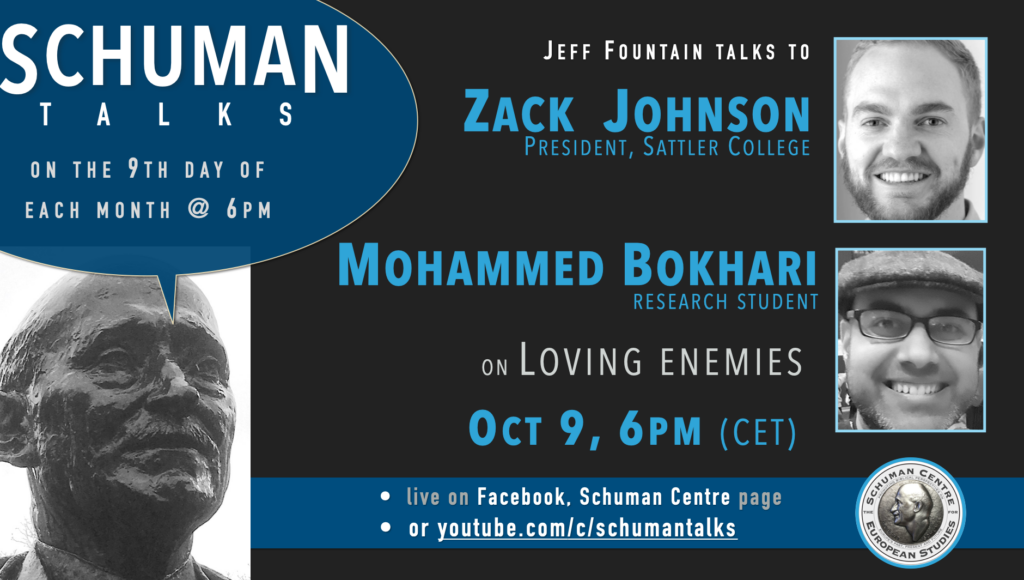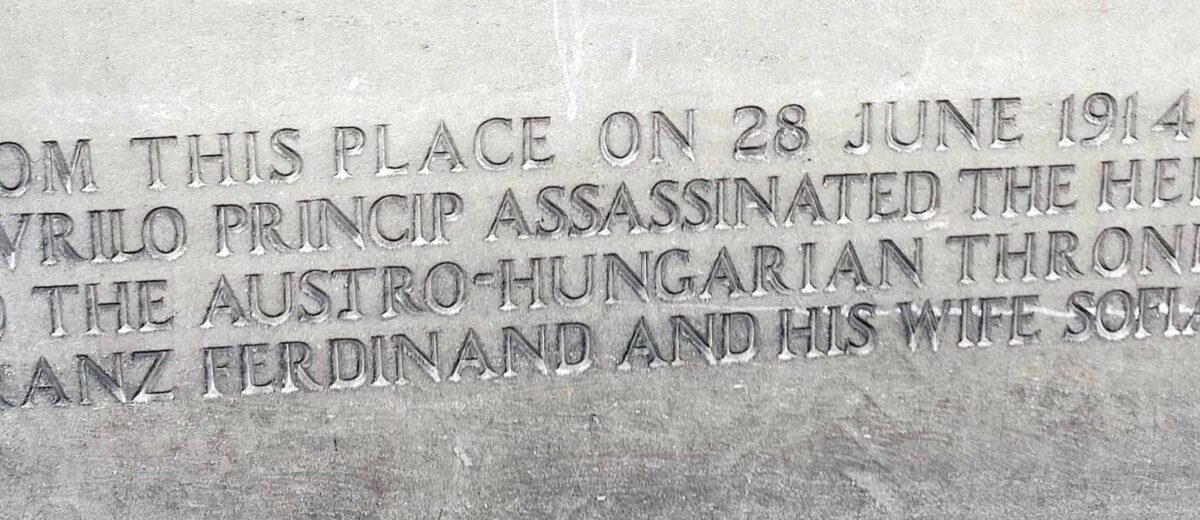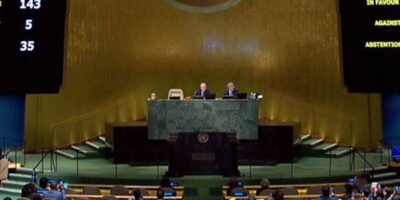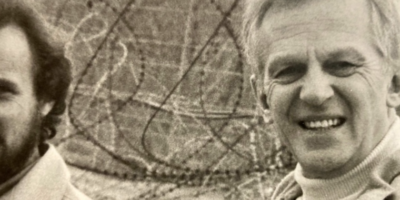Peter exhorts us always to be ready to give a reason for the hope that we have (1 Peter 3:15). So how could I refuse when I was asked to share my hope at the opening session of the Hope for Europe congress in Sarajevo this week?
To be honest, neither the setting of the congress nor the daily headlines lent credibility to my topic. The first shot of World War One was fired not far from where we were meeting. A plaque marks the spot where the Archduke Franz Ferdinand was assassinated on a street corner in Sarajevo, setting off a chain-reaction leading to the death of millions (see photo).
Since 1996, Bosnia has struggled to recover from the longest military siege in modern history, lasting almost four years with a toll of 11,500 lives. Hopes for the easing of ethnic tensions over the two decades since my last visit to Bosnia’s capital were not bolstered by last weekend’s national elections which only deepened divisions. Young Bosnians are leaving their homeland in droves seeking more hopeful futures.
As the 250 congress delegates gathered from across Europe, so too the clouds of war darkened on the Ukrainian-Russian border. Putin had just upped the stakes announcing the ‘annexation’ of the Donbas, vowing to fight on against the ‘satanic West’.
Add to all this the challenges we already faced across the continent: runaway inflation, spiralling energy costs, migration issues, climate change, a renewed wave of COVID, religious tensions, polarised societies and much more.
So who dares talk of hope these days?!
Euphoric
Thirty years ago the mood was euphoric as the world suddenly changed with the unexpected collapse of communism. The future seemed so promising. From all corners, evangelistic teams flooded into central and eastern Europe, often creating confusion and competitiveness.
As a newly appointed leader of YWAM Europe, I was invited to meet with leaders of other movements in Europe to explore collaboration. The Hope for Europe movement resulted, networking a range of similar ministries in different locations across the continent. Early in the new millennium, we held the HOPE•21 congress in Budapest with a thousand participants from twenty networks.
Network leaders gathered annually at European Round Tables deepening relationships and developing vision. The networks have continued working across Europe ever since. Further Hope for Europe events happened in 2011, 2018 and now this week in Sarajevo.
What however was our goal? What were we waiting for? What were our hopes for Europe? We had networks in place but we needed a theology of hope. We began searching for a biblical response to the gloom and doom perspective among some evangelicals expecting things to worsen as the ‘end of time’ approached. This attitude had paralysed many into a fatalistic acceptance of Europe’s (and the church’s) decline.
Yet Jesus taught us to pray, may your kingdom come; in other words, may your will be done on earth, in Europe, as it is in heaven. By definition, it is always God’s will for his will to be done. It is never God’s will for his will not to be done. Why do so many accept that it is his will that his will not be done??!
Grounds and goals
For Christian hope is not dependent on current circumstances nor on positive prospects but on God’s will. Our hope is in the Tri-une God, who never changes no matter how much our circumstances change. The ground of our hope is the Trinity: the Father’s person, purposes and promises give us hope; either the Son’s life, death and resurrection happened and we have hope, or it didn’t and we are without hope; the Spirit’s outpouring at Pentecost in fulfilment of Joel’s prophecy and subsequently is the guarantee, the foretaste and the deposit of what is still yet to come.
The goal of our hope, that for which we are waiting, is also the Trinity: to rule and reign with the Father; the return of the Son who will reconcile all things under heaven and on earth; and the ongoing outpouring of the Spirit until all peoples have been blessed.’
The church is to be an arrow, Jürgen Moltmann said, sent out into the world to point the way to the future. Its task is to bring light into darkness, hope where there is despair. God’s people are to be a people of hope, as the church in Ukraine is demonstrating right in the darkest situations.
Yes, there is still hope, even for Europe!

P.S. You can still join for the second session of the online learning community on ‘engaging the world with Abraham Kuyper’, Thursday, October 13, 19.30-21.00. Write me at jeff@schumancentre.eu for the link and the recording of the first session.
P.P.S. The next hybrid European Studies Day, is on ‘what made Europe ‘Europe’?’, 10.00-15.00, Saturday Oct 29 (not 22 as previously announced). Write for the link.
Till next week,



